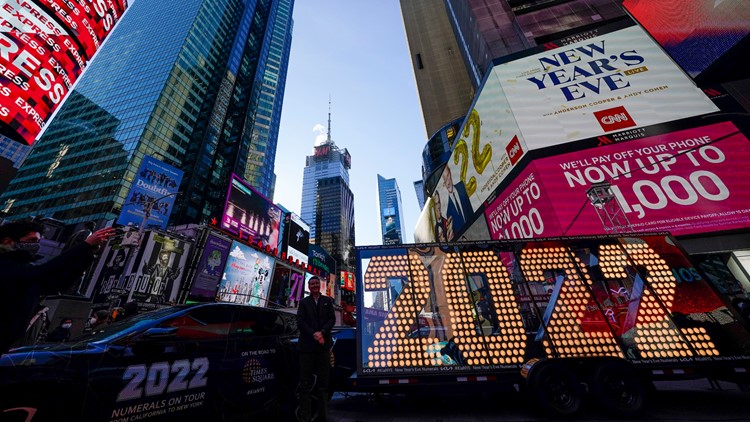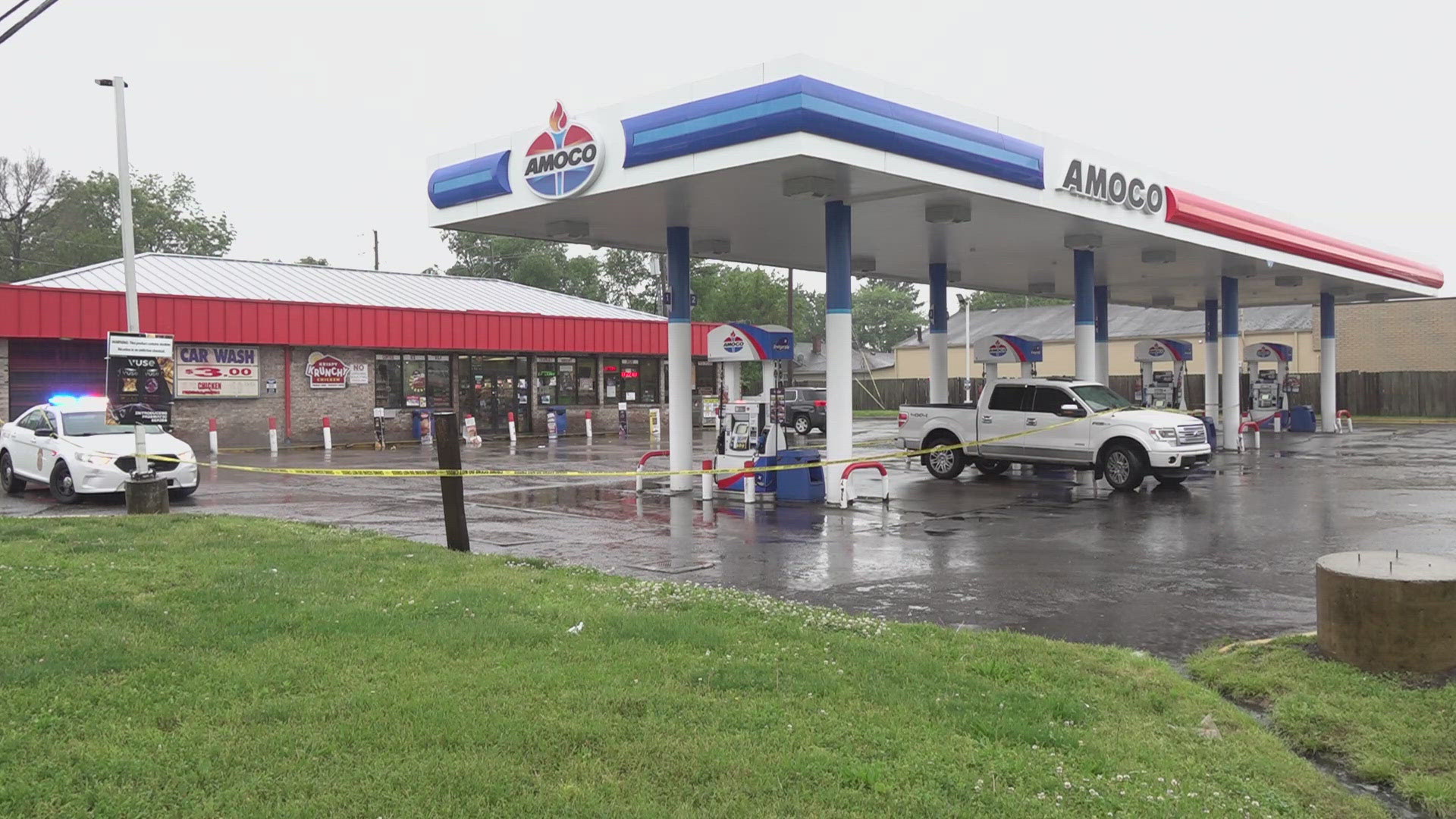INDIANAPOLIS — As we look ahead to 2022, there are many great events to celebrate New Year's Eve throughout the greater Indianapolis area.
Online ticket sites show dozens of themed rooftop soirées, concerts or bar celebrations are options for people wanting to usher 2022 together.
For the second year in a row though, those massive celebrations we associate with the night of Dec. 31 are being discouraged by both state and national health officials in the midst of the emerging omicron variant.
Melissa McMasters, an administrator of the immunization and infectious disease program with Marion County Public Health Department, said avoiding New Year's Eve celebrations in public spaces like bars is less preferable to private parties.
"As you get more and more people, you really can't confirm their vaccination status, and you really aren't sure who or who has not been vaccinated," McMasters said.
Smaller parties, where you can mask up and check the vaccination status of those around you, could be a compromise between celebration and safety.
"Reminding people that, when you have a variant that spreads quickly, it's going to seek out people to spread it. And that would be the unvaccinated or partially-vaccinated. So definitely, there is a risk going out," McMasters said.
As the first cases of omicron continue to spread across the country, Marion County has not yet seen the full impact of the anticipated omicron surge.
McMasters said that could coincide with New Year's Eve.
"We have a line out the door for actually coming to the health department for testing. We've had several people walk in to get the at-home tests. So I can definitely tell you that a lot of people probably spent time with loved ones over Christmas, and now have some concerns that are coming to get tested," McMasters said.
That advice mirrors that of White House chief medical advisor Dr. Anthony Fauci, who cautioned against large New Year's Eve parties on Monday.
Fauci said that even for those who are vaccinated and boosted, champagne toasts should be limited to smaller gatherings.
“When you are talking about a New Year’s Eve party, where you have 30, 40, 50 people celebrating, you do not know the status of the vaccination—I would recommend strongly, stay away from that this year,” Fauci told CNN. “There will be other years to do that, but not this year.”
But while health officials are urging caution heading into 2022, that doesn't mean the New Year's Eve situation this year is an exact mirror to the one last year. For example, the vaccine was not available to most adults at the beginning of 2021.
Getting boosted as soon as possible should remain a priority.
"It makes sense to go out and get the booster as soon as you can now because, you know, omicron is on its way, and it definitely is going to target the unvaccinated," McMasters said.
Currently, the definition of partially vaccinated does not extend to people who have not gotten the booster. The CDC defines fully vaccinated as two weeks after someone has received the first and second shot of the Pfizer or Moderna vaccine, or two weeks after someone has received the single-dose shot of the Johnson & Johnson vaccine.
That definition could soon be updated.
"Don't be surprised if that changes. I think they're going to move toward getting primary series and a booster, and that's fully vaccinated. But they haven't moved toward that just yet," McMasters said.
Another surge of COVID-19 late in the year has already impacted the 2021 holiday season.
More than 2,000 flights were canceled over the Christmas weekend as airlines struggled to replace staffers who came down sick with COVID-19.
Airlines canceled hundreds more flights Sunday, citing staffing problems tied to COVID-19, as the nation's travel woes extended beyond Christmas, with no clear indication when normal schedules would resume.
More than 700 flights entering, leaving or flying within the U.S. were called off, according to the flight-tracking website FlightAware. That figure was down from nearly 1,000 on Saturday. More than 50 flights were already canceled for Monday.
Delta, United and JetBlue have blamed the omicron variant of the coronavirus for staffing shortages that forced cancellations.
Globally, airlines scrapped about 2,200 flights as of Sunday morning, down from more than 2,800 from the day before, FlightAware’s data showed. The site does not say why flights are canceled.



